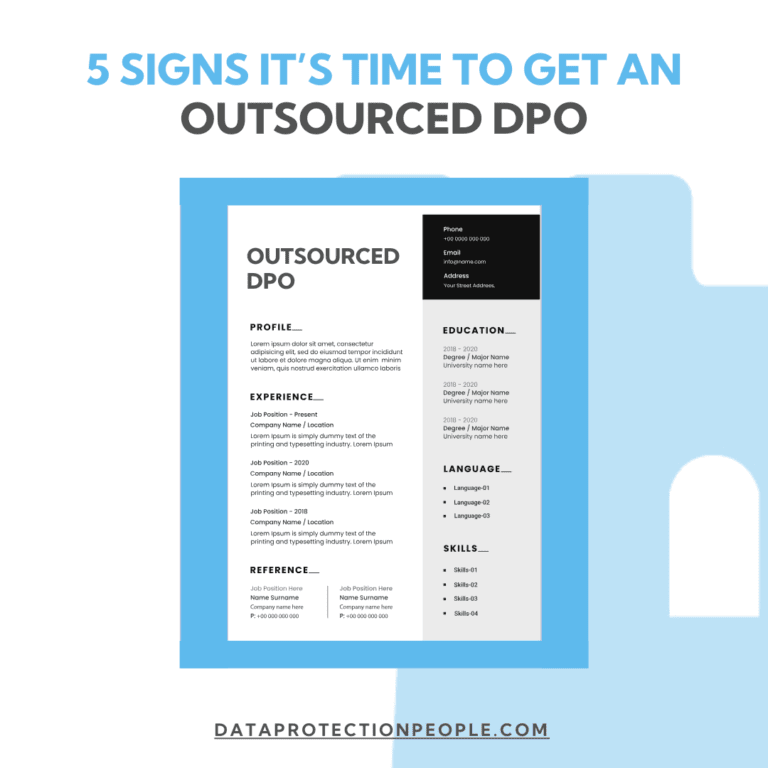5 Signs It’s Time to Get an Outsourced Data Protection Officer
In-house DPO struggling? Discover 5 reasons outsourcing offers a better solution for compliance, cost and breach prevention.

If you handle compliance in-house, you might have noticed increasing strains on your resources and team’s workload. Recognising when it’s time for external support is crucial if you want to avoid these pressures turning into costly mistakes.
Below, we list the five telltale signs that outsourcing your DPO might be the most strategic move for your organisation.
Reason 1: Your Outgoings Are Rising
The average salary for a data protection officer is over £44,000 a year, with entry-level positions starting at around £34,000 per year. Not only are you paying this salary, but you are also covering the cost of training, sick pay and future pay raises.
Depending on your processing activities, you may not require full-time (or even part-time) support for your GDPR obligations. This means you’re losing money on an investment that your business doesn’t need or can afford in the long run
An outsourced data protection officer is a cost-effective solution without the internal overhead. You’ll only need to pay a fixed service fee, which means you’ll reduce your outgoings and have more to invest in your business.
Reason 2: Your DPOs Are Overstretched
A DPO is responsible for fulfilling the duties outlined in Article 39 of the GDPR. If your DPO can’t carry out their role effectively, the purpose of having one is defeated. Outsourcing an independent DPO means they’ll only focus on what matters: keeping your business compliant.
Often, the appointed DPO will carry out their role alongside their main job. This works when you have simpler processing activities, but what if this grows? Can your DPO handle the pressure, or will they burn out?
Reason 3: Management Is Too Involved
In Article 38, the GDPR states that DPOs must operate independently and cannot be dismissed or penalised for carrying out their tasks.
For example, your DPO may identify an issue with a department’s processing activities. Management cannot get involved in what happens next, even if it impacts the business. This can cause internal friction or a conflict of duty for the DPO.
Conflict of interest can be complex to avoid when you manage everything in-house. With an external provider, you separate your commercial objectives from your compliance obligations, meaning there is less room for resistance.
Reason 4: You’re Falling Behind
It’s easy for compliance to slip, and if your employees are already struggling with their workload, how will they make time for GDPR training? Ideally, your DPO should always be looking for ways to improve their knowledge, whether that’s keeping up with ICO guidance or listening to industry podcasts.
With an outsourced DPO, you don’t need to worry about their learning and development. Their training costs are covered, meaning you’ll get access to the latest insight and best practices for a much more effective price.
Reason 5: You’ve Just Had a Data Breach
Data breaches are no longer a rarity. While some incidents may stem from external attacks, a significant number originate internally. Your DPO plays a crucial role in proactively identifying and mitigating these risks before they escalate into a full-blown breach.
If your DPO can’t monitor compliance effectively, your team’s unaware actions risk a data breach – a preventable crisis that a vigilant DPO could have avoided.
Despite the breach, outsourcing your DPO now offers both immediate damage control and a long-term strategy to reduce liability and secure your data processing.
Contact Our GDPR Data Protection Officers Today
Whether your team needs a helping hand or a full-time DPO, our qualified data protection professionals are here to help your team.
Get access to expert guidance from today – simply get in touch to find out more.
